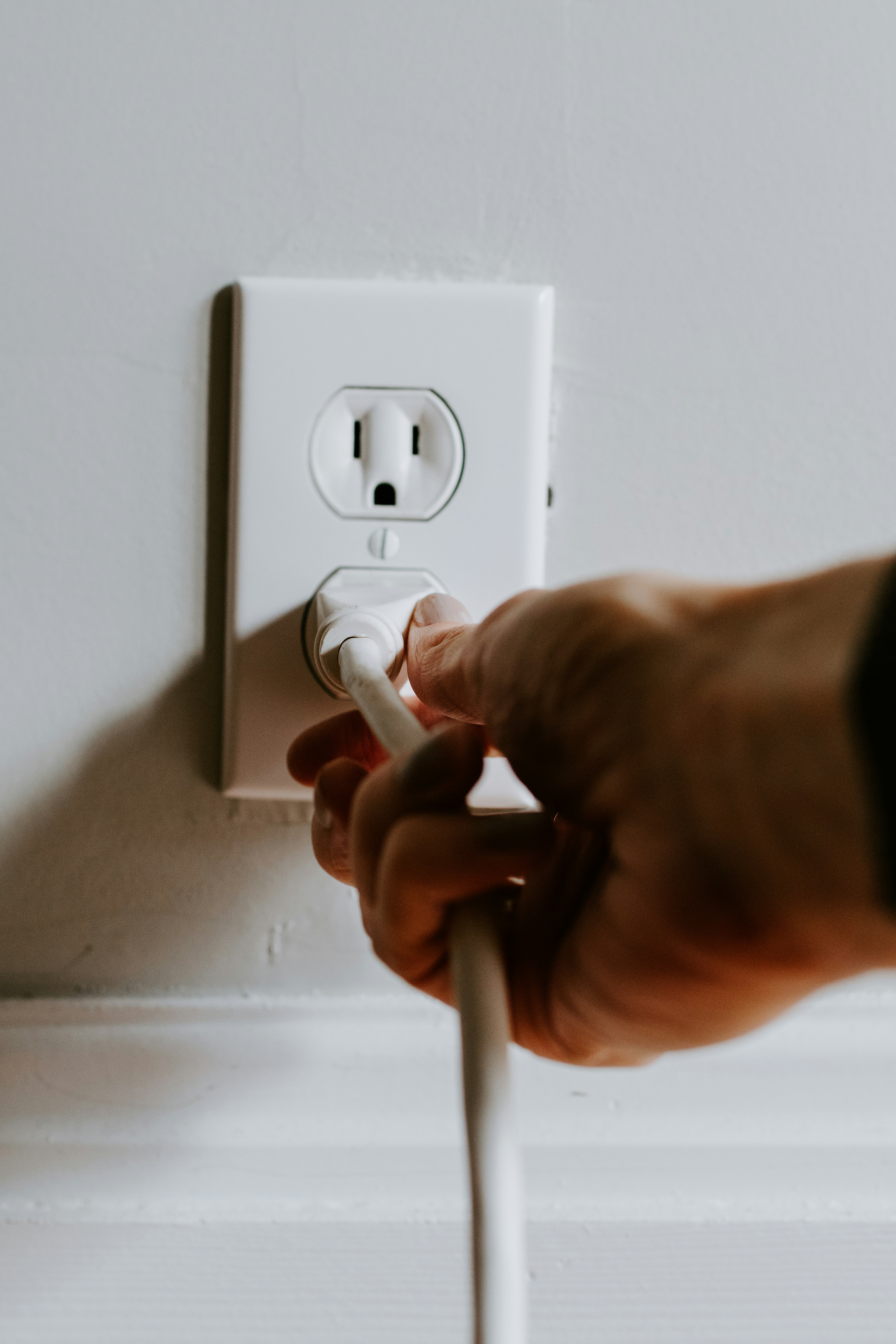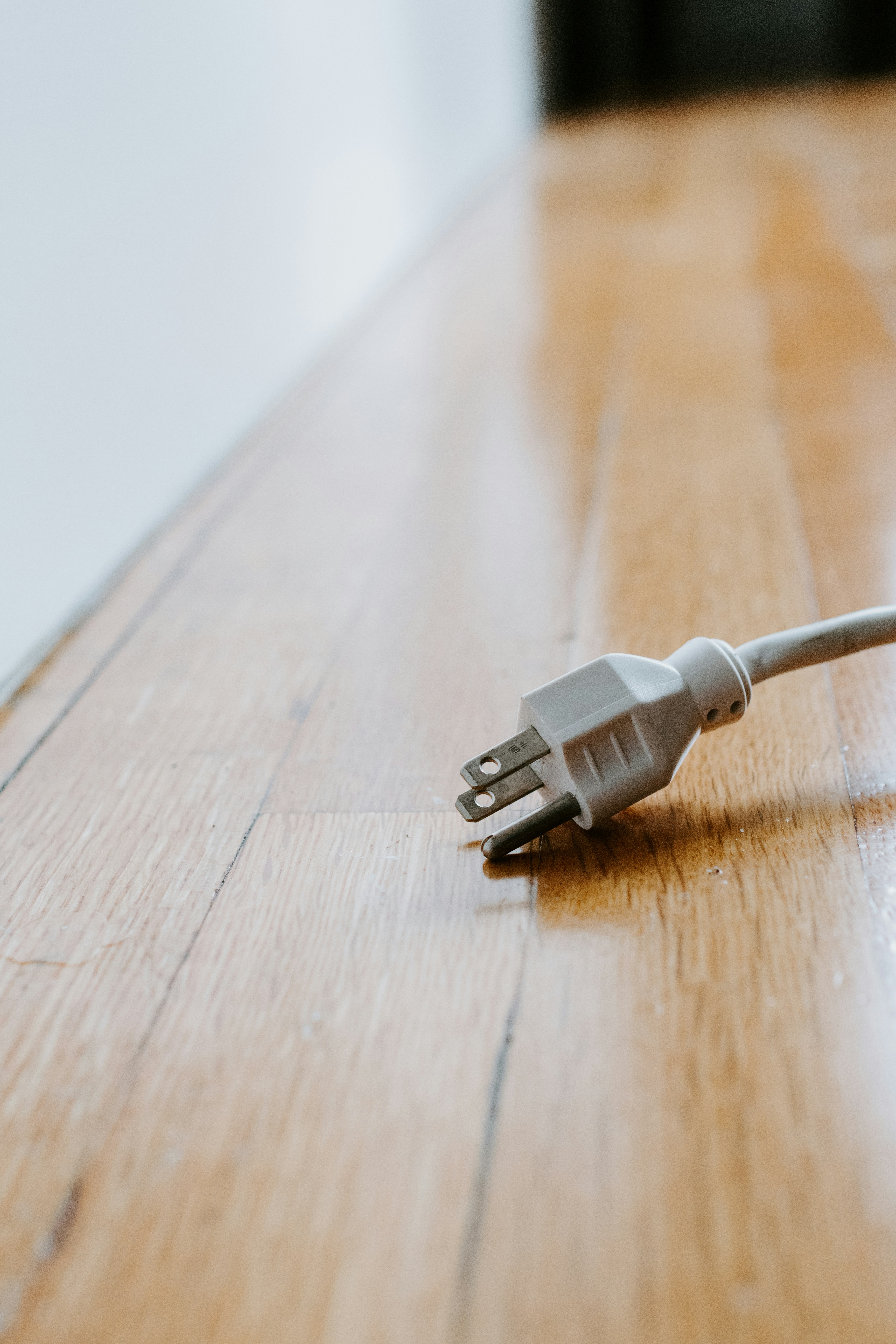Imagine a world where power outages are no longer a cause for panic. With the Patriot portable solar generators, disaster preparedness becomes a breeze. These generators are specifically designed for the tactical, survival, and outdoorsman audiences, providing them with a reliable and efficient source of power in times of need. Whether it’s a natural disaster or a camping trip, these solar generators have got you covered. Say goodbye to the stress of being left in the dark and embrace a new level of preparedness with the ultimate survival essential: the Patriot portable solar generator.
Benefits of Solar Generators
Renewable Source of Power
Solar generators harness the power of the sun to generate electricity, making them a renewable source of power. Unlike fossil fuels, which are finite and produce harmful emissions, solar energy is clean and inexhaustible. By utilizing solar generators, you can reduce your carbon footprint and contribute to a more sustainable future.
Reduced Reliance on Fossil Fuels
With solar generators, you can significantly reduce your reliance on fossil fuels for electricity generation. Traditional power sources such as coal and natural gas contribute to greenhouse gas emissions and air pollution. By opting for solar power, you can help combat climate change and protect the environment for future generations.
Silent Operation
One of the advantages of solar generators is their silent operation. Unlike noisy gas generators or diesel-powered alternatives, solar generators produce power without emitting any noise. This feature is particularly beneficial in disaster scenarios where peace and tranquility are important for maintaining a sense of calm.
Low Maintenance
Solar generators require minimal maintenance compared to other power sources. Once installed, they have no moving parts that require regular inspections or lubrication. With proper care, such as cleaning the solar panels, your generator can operate efficiently for years with little to no maintenance, saving you time and effort.
Independence from the Grid
Solar generators provide independence from the traditional power grid. This is especially advantageous during disasters when the grid may be unreliable or completely unavailable. By generating your own electricity, you can ensure that essential appliances and devices continue to function even when the grid is down, enhancing your overall resilience.
Long-Term Cost Savings
Investing in a solar generator can lead to significant long-term cost savings. While the initial purchase and installation costs may be higher than other power sources, solar generators require minimal ongoing expenses. Since solar power is free, you won’t have to worry about increasing fuel costs or fluctuating electricity prices. Over time, the savings can outweigh the initial investment, making solar generators a financially prudent choice.
Types of Solar Generators
Portable Solar Generators
Portable solar generators are compact and easily transportable power sources. They often come with built-in handles or wheels for convenience. These generators are ideal for outdoor activities, camping trips, and emergency situations where mobility is essential. Portable solar generators are typically lightweight and can be charged using solar panels or through an AC outlet.
Stationary Solar Generators
Stationary solar generators are designed for permanent installations and are commonly used for homes, cabins, or other fixed structures. These generators are larger in size and often have higher power output and battery capacity. Stationary solar generators are typically connected to the main electrical panel and can provide backup power during grid outages. They are a reliable source of electricity for long-term disaster preparedness.
Hybrid Solar Generators
Hybrid solar generators combine solar power with another energy source, usually a fuel-powered generator or a wind turbine. These generators provide a more flexible and reliable power solution, allowing you to generate electricity even when the sun is not shining or the wind is not blowing. Hybrid solar generators are versatile and can be used in various scenarios, making them suitable for both portable and stationary applications.
Key Features to Consider
Power Output
The power output of a solar generator determines how much electricity it can provide. Consider your power needs and choose a generator that can handle the wattage required to run your essential appliances and devices.
Battery Capacity
Battery capacity is an important consideration as it determines how long your solar generator can provide power without needing to be recharged. A higher battery capacity can ensure longer periods of electricity availability during an emergency.
Solar Charge Time
Solar charge time refers to the duration it takes for the generator’s batteries to fully charge using solar panels. A shorter charge time is preferable, especially in situations where sunlight may be limited.
Portability
If you plan on using your solar generator for outdoor activities or during emergencies that require mobility, portability is crucial. Look for generators that are lightweight, compact, and feature ergonomic handles or wheels for easy transportation.
Durability
Invest in a solar generator that is built to withstand harsh weather conditions and rugged environments. It should be water-resistant, shockproof, and able to endure extreme temperatures.
Expandability
Consider whether the solar generator is expandable, meaning it can be connected to additional solar panels or batteries to increase its capacity. This feature allows for future scalability and customization based on your evolving power needs.
Battery Life
The battery life of a solar generator determines how many charging cycles it can go through before degrading. Opt for generators with longer battery life to ensure they will last for extended periods without compromising performance.
Weight and Size
The weight and size of a solar generator directly impact its portability and ease of use. Choose a generator that strikes a balance between being compact and lightweight while still providing sufficient power output.
Noise Level
If operating a quiet generator is important to you, consider the noise level of the solar generator. Look for models that are designed to operate silently, ensuring minimal disruption or disturbance.
Ease of Use
Ensure that the solar generator is user-friendly, with easy-to-understand controls and clear indications of its power status. The setup and operation should be straightforward, even for individuals with limited technical knowledge.
Top Solar Generator Brands
Goal Zero
Goal Zero is a renowned brand in the solar generator market, offering a range of portable and stationary options. They are known for their durable and efficient generators, featuring multiple power output options and expandability.
Jackery
Jackery is a popular brand that specializes in portable solar generators. Their products are known for their compact design, high-quality build, and multiple charging options. Jackery generators are ideal for outdoor enthusiasts and emergency preparedness.
Anker
Anker is a well-known brand in the tech industry, and they also offer solar generators. Anker generators are compact, lightweight, and provide reliable power for everyday use and emergency situations. They emphasize affordability without compromising quality.
Renogy
Renogy specializes in solar power products, including solar generators. Their generators are known for their high battery capacity and power output, making them suitable for both portable and stationary applications. Renogy is a trusted brand in the renewable energy market.
EcoFlow
EcoFlow offers versatile solar generators designed for both indoor and outdoor use. Their products are known for their fast solar charging capabilities, high battery capacity, and easy-to-use interfaces. EcoFlow generators are suitable for emergency situations and long-term power backup.
Patriot Power Generator
Patriot Power Generator is a brand that caters specifically to the tactical, survival, and outdoor enthusiast audiences. Their products are built with ruggedness in mind and boast features such as compact design, high power output, and fast charging capabilities.
Choosing the Right Solar Generator for Disaster Preparedness
Assessing Power Needs
Determine the wattage requirements of your essential appliances and devices to calculate the power output needed from your solar generator. Consider both the starting and running wattage to ensure compatibility.
Determining Portability Requirements
If mobility is a priority, opt for a portable solar generator that is lightweight, compact, and easy to transport. Stationary generators are more suitable for long-term disaster preparedness where mobility is less crucial.
Considering Budget
Set a budget for your solar generator purchase and compare different options within your price range. Take into account the initial cost, ongoing maintenance expenses, and long-term savings.
Evaluating Battery Capacity
Assess the battery capacity of different solar generators, considering how long you will need power during emergencies. Choose a generator with sufficient capacity to meet your specific needs.
Researching Brand and Customer Reviews
Research the reputation and customer reviews of different solar generator brands. Look for feedback on product quality, customer service, and reliability. Consider the experiences of others to make an informed decision.
Comparing Solar Charge Time
Compare the solar charge time of different generators to ensure they meet your requirements. A shorter charge time allows for quicker availability of power, especially during emergency situations.
Considering Warranty and After-Sales Support
Look for solar generators that come with a warranty, ensuring protection against defects and malfunctions. Additionally, consider the availability of after-sales support to address any potential issues or queries.
Solar Generators vs. Other Power Sources
Solar Generators vs. Gas Generators
Solar generators have several advantages over gas generators. Solar power is a clean and renewable energy source, while gas generators rely on non-renewable fossil fuels. Solar generators also operate silently, unlike gas generators that produce noise and emit harmful fumes. Additionally, solar generators have lower maintenance requirements and do not require fuel storage.
Solar Generators vs. Battery Power Banks
While both solar generators and battery power banks provide portable electricity solutions, they serve different purposes. Solar generators generate power using solar panels, providing a continuous source of energy. Battery power banks store energy but require an external power source, such as a wall outlet, to charge. Solar generators are ideal for long-term power needs, while power banks are suitable for short-term charging and small electronic devices.
Solar Generators vs. Wind Turbines
Solar generators and wind turbines are both renewable energy options but differ in their power generation methods. Solar generators harness solar energy, while wind turbines utilize wind power. Solar generators are more versatile and accessible as they can generate electricity in various weather conditions, while wind turbines require consistent wind speeds. Consider the specific climate and environment when choosing between the two.
Building a Solar Generator Emergency Kit
Solar Panels
Solar panels are essential components of a solar generator emergency kit. Choose high-quality panels with appropriate wattage and efficiency to effectively capture sunlight and convert it into electricity.
Portable Solar Power Station
A portable solar power station, also known as a generator, forms the core of your emergency kit. Ensure it has sufficient power output, battery capacity, and charging options to meet your specific needs.
Power Inverters
Power inverters are necessary to convert the DC power generated by the solar panels into AC power usable by your appliances. Choose inverters with the appropriate wattage for your devices.
Battery Chargers
Battery chargers allow you to replenish the stored energy in your solar generator’s batteries. Consider portable solar chargers or AC chargers that can be powered by the generator or an external power source.
Essential Accessories
Include additional accessories such as cables, connectors, surge protectors, and adapters in your emergency kit. These accessories help ensure compatibility, extend the functionality of your solar generator, and enable easy connections to your appliances.
Solar Generator Maintenance and Care
Regular Battery Maintenance
Regular battery maintenance is crucial to ensure the longevity and performance of your solar generator. Follow the manufacturer’s guidelines for charging, discharging, and storing the batteries. Monitor battery levels and conduct periodic inspections to identify any signs of wear or damage.
Cleaning Solar Panels
Keep your solar panels clean to maximize their efficiency. Remove any dirt, debris, or snow that may accumulate on the panels, as these can hinder sunlight absorption. Gently wipe the surface with a soft cloth or use a non-abrasive cleaning solution if necessary.
Storing in a Safe Location
When not in use, store your solar generator in a safe and secure location. Protect it from extreme temperatures, moisture, and direct sunlight. Consider using a protective case or cover to shield it from physical damage or potential exposure to the elements.
Testing and Inspecting Equipment
Regularly test and inspect your solar generator and its components to ensure everything is functioning correctly. Perform routine checks on the power output, battery capacity, charging capabilities, and overall system integrity. Address any issues or malfunctions promptly.
Replacing Faulty Components
If you encounter any faulty components or parts, promptly replace them to maintain the optimal performance of your solar generator. Consult the manufacturer’s instructions or seek professional assistance if necessary. Remember to use genuine replacement parts for compatibility and safety.
How to Effectively Use a Solar Generator in a Disaster
Understanding Your Solar Generator’s Capabilities
Familiarize yourself with the specifications and features of your solar generator. Understand its power output, battery capacity, charging options, and limitations. This knowledge will help you make informed decisions about power usage during a disaster.
Conserving Energy
During a disaster, it is essential to conserve energy to prolong the available power. Turn off unnecessary lights, unplug unused appliances, and adjust settings to energy-saving modes whenever possible. Be mindful of power usage and prioritize essential devices.
Prioritizing Essential Appliances
Identify and prioritize the essential appliances and devices that you need to power during a disaster. This may include medical equipment, communication devices, refrigeration, or lighting. Distribute power accordingly and manage usage to ensure critical needs are met.
Managing Power Usage
Optimize power usage by understanding the energy requirements of your appliances. Choose energy-efficient devices, use power-saving features whenever possible, and avoid running multiple high-energy-consuming devices simultaneously. Manage your power supply strategically and avoid overloading the generator.
Utilizing Solar Energy Backup Systems
Consider integrating solar energy backup systems into your disaster preparedness plan. This includes additional solar panels, batteries, or backup generators. These systems can enhance your capacity to generate and store power, providing extended energy availability during prolonged emergencies.
Conclusion
Ensuring Energy Security in Disaster Situations
Solar generators offer numerous benefits for disaster preparedness, including a renewable power source, reduced reliance on fossil fuels, silent operation, low maintenance, and independence from the grid. By investing in a solar generator, you can ensure energy security and contribute to a more sustainable future.
Making an Informed Solar Generator Purchase
Consider key factors such as power output, battery capacity, solar charge time, portability, durability, and brand reputation when choosing a solar generator. Research customer reviews and compare different options to make an informed purchase that suits your specific needs and budget.
Investing in Disaster Preparedness
Building a solar generator emergency kit with components such as solar panels, portable power stations, power inverters, battery chargers, and essential accessories is crucial for disaster preparedness. Regular maintenance and care, understanding your solar generator’s capabilities, conserving energy, and managing power usage effectively are essential for its optimal performance during emergencies. By investing in solar generators and adopting sustainable energy solutions, you can enhance your resilience and preparedness for disasters.









